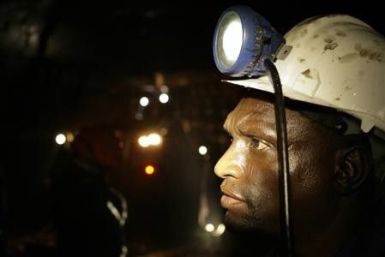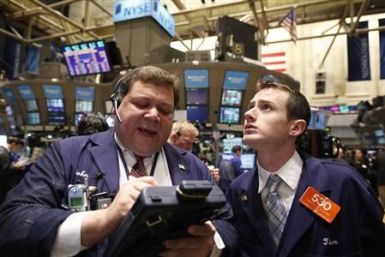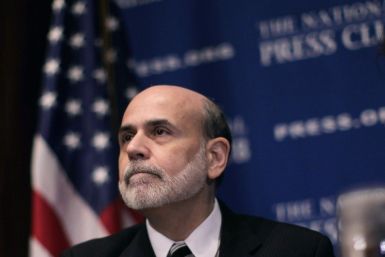U.S. employment rose far less than expected in January, partly the result of severe snow storms that slammed large parts of the nation, but the unemployment rate fell to its lowest level since April 2009.
Among the issues raised by the recent outbreak of civil unrest in the Middle East and North Africa is the rapidly growing population in some of these countries. This subject has particularly stark implications for Israel.
For Esther Moloto, the 32-year-old owner of a little house on top of the world's biggest platinum reserves, the sound of progress is falling plaster.
U.S. employment rose by a meager 36,000 jobs in January, far less than expected, as severe snow storms slammed large parts of the nation, but the unemployment rate fell to its lowest level since April 2009.
U.S. employment rose far less than expected in January, partly the result of severe snow storms that slammed large parts of the nation, but the unemployment rate fell to its lowest level since April 2009.
Employment rose far less than expected in January, partly the result of severe snow storms that slammed large parts of the nation, but the unemployment rate fell to its lowest level since April 2009.
U.S. stocks wavered in early trade on Friday after a government report showed that U.S. added fewer jobs than forecast for January, while the unemployment rate unexpectedly declined to its lowest level since April 2009
The U.S. economy added a mere net new 36,000 jobs last month, although the unemployment rate fell sharply to 9.0 percent from 9.4 percent, according to the U.S. Bureau of Labor Statistics (BLS).
Dollar Gold and Silver Prices were little changed in London trade on Friday, unmoved by unexpectedly weak US jobs data near two- and 3-week highs respectively.
Employment rose by a meager 36,000 jobs in January, far less than expected, as severe snow storms slammed large parts of the nation, but the unemployment rate fell to its lowest level since April 2009.
When it comes to the size of corporates, most Americans are wary of giant-sized ones straddling continents and effectively controlling many a government.
As popular protests are bring down governments or seriously compromising rulers in the Middle East, one person looking at the turn of events uneasily is the Saudi Arabian King Abdullah.
Wall Street stock index futures were slightly higher on Friday ahead of the release of the keenly watched U.S. non-farm payrolls data.
Employment probably shifted into a higher gear in January to post a fourth straight month of gains, offering more evidence of a broadening economic recovery, though the jobless rate likely rose.
Employment probably shifted into a higher gear in January to post a fourth straight month of gains, offering more evidence of a broadening economic recovery, though the jobless rate likely rose.
New U.S. claims for unemployment benefits dropped more than expected last week, a government report showed on Thursday, pointing to continued gradual improvement in the labor market.
Tens of thousands of Yemenis squared off in peaceful protests for and against the government on Thursday during an opposition-led Day of Rage, a day after President Ali Abdullah Saleh offered to step down in 2013.
Algeria promised to end a 19-year-old state of emergency and provide more political freedoms on Thursday, concessions designed to keep out a wave of uprisings sweeping the Arab world.
Egypt's government struggled to regain control of an angry nation, inviting Islamist opponents to political talks as protesters demanding the overthrow of Hosni Mubarak battled with his supporters on the streets.
Federal Reserve Chairman Ben Bernanke's speech to the National Press Club on Feb. 3, 2011
New U.S. claims for unemployment benefits dropped more than expected last week, a government report showed on Thursday, pointing to continued gradual improvement in the labor market.
New U.S. claims for unemployment benefits fell sharply last week while nonfarm productivity in the fourth quarter was stronger than expected, confirmation the economic recovery was strengthening.





























